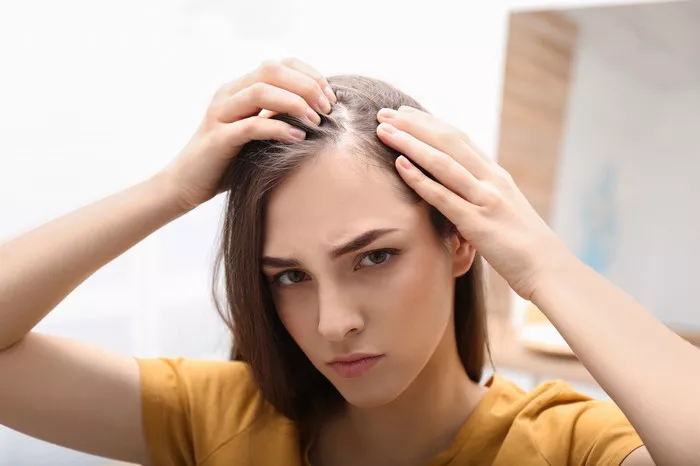What is hard water
Hard water is water that contains high levels of dissolved minerals, particularly calcium and magnesium. These minerals are naturally present in the earth’s crust and can dissolve in water as it flows through rocks, soil, and underground aquifers. The concentration of minerals in water determines its hardness.
The hardness of water is typically measured in grains per gallon (GPG) or parts per million (PPM). Water with a low mineral content is considered soft, while water with a high mineral content is considered hard. The hardness of water can vary depending on the region and the source of the water supply.
Hard water can have several characteristics and effects:
Mineral Deposits: When hard water evaporates or comes into contact with surfaces, it can leave behind mineral deposits, commonly known as limescale. These deposits can accumulate in pipes, water heaters, and appliances, reducing their efficiency and lifespan.
Soap Scum:
Hard water reacts with soap to form soap scum, a sticky residue that can be difficult to rinse off. Soap scum can leave a film on surfaces, including the skin and hair, making it challenging to achieve a thorough clean.
Reduced Lathering:
Hard water can inhibit the lathering ability of soaps, shampoos, and detergents. This can result in the need for larger amounts of cleaning products to achieve the desired lather and effectiveness.
Dryness and Irritation:
The minerals in hard water can strip the natural oils from the skin and hair, leading to dryness and potential irritation. This can make the skin feel rough, itchy, and prone to conditions like eczema. Similarly, the hair may become dry, brittle, and prone to frizz and breakage.
Impact on Hair:
Hard water can affect the overall health and appearance of the hair. The mineral buildup can weigh down the hair, make it look dull and lifeless, and contribute to increased breakage. It can also cause color-treated hair to fade more quickly.
While hard water can present challenges, it is generally safe for consumption and does not pose a health risk. However, individuals may choose to address the effects of hard water by implementing water softening techniques or using specific products designed to counteract its negative effects.
The Relationship Between Hard Water and Hair Loss
Scalp Health and Hair Loss: The health of the scalp plays a vital role in the overall condition of the hair. Hard water minerals, along with the residue they create, can disrupt the natural balance of the scalp, potentially leading to scalp dryness, irritation, and inflammation. In some cases, these scalp issues can contribute to hair shedding or hair loss.
Impact on Hair Shaft: The mineral deposits left by hard water can coat the hair shaft, causing it to become brittle and prone to breakage. Weakened hair strands are more likely to snap or fall out, leading to increased hair shedding. However, it is important to note that this shedding is often temporary and reversible once the hair is properly cared for and the mineral buildup is addressed.
Mitigating the Effects of Hard Water on Hair
Clarifying Shampoos: Using a clarifying shampoo once a week or as needed can help remove mineral buildup and residue from the hair. These shampoos are specifically formulated to deep cleanse and eliminate impurities, restoring the hair’s natural shine and manageability.
Chelating Treatments:
Chelating treatments, often available in the form of masks or treatments, are designed to remove mineral deposits and buildup from the hair and scalp. These treatments use chelating agents that bind to the minerals, allowing them to be rinsed away effectively.
Water Softening Techniques:
Installing a water softener system in your home can help reduce the mineral content in the water, addressing the issue of hard water at its source. Water softeners work by exchanging the calcium and magnesium ions with sodium ions, resulting in softer water that is less likely to cause hair and scalp problems.
pH-Balanced Hair Products:
Opting for pH-balanced hair care products can help restore the natural pH of the scalp, promoting a healthy environment for hair growth. Look for shampoos, conditioners, and styling products specifically formulated for use in hard water areas.
Scalp and Hair Moisturization:
Regularly moisturizing the scalp and hair can help alleviate dryness and restore hydration. Use moisturizing conditioners, hair masks, or natural oils to nourish and protect the hair from the potential drying effects of hard water.
Professional Advice: If you’re experiencing persistent hair loss or significant concerns related to hard water, consulting a healthcare professional or a dermatologist specializing in hair health is recommended. They can assess your specific situation, provide personalized advice, and recommend suitable treatment options if necessary.
Conclusion
While hard water can have an impact on hair health, it is important to understand that hair loss caused solely by hard water is relatively rare. The mineral buildup and scalp issues associated with hard water can contribute to hair shedding or breakage, but these effects are often reversible with proper care and attention. By incorporating hair care strategies such as using clarifying shampoos, chelating treatments, and pH-balanced products, as well as considering water softening techniques, individuals living in areas with hard water can mitigate its potential negative effects on their hair. Remember to prioritize scalp and hair health through regular moisturization and seek professional advice if you have concerns about persistent hair loss or related issues. With the right approach, it is possible to maintain healthy, vibrant hair even in areas with hard water.


